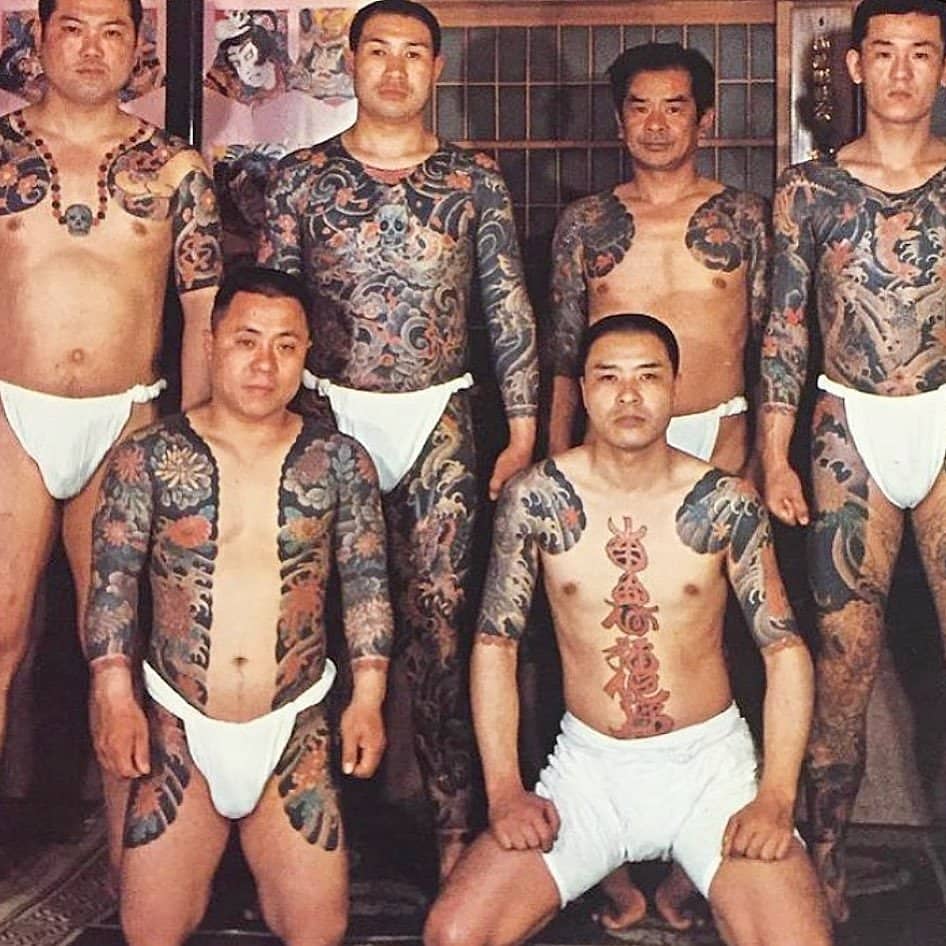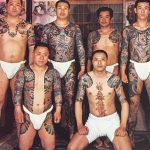Introduction
The Yakuza, Japan’s most notorious gangsters, have long held a reputation for their criminal activities and secretive lifestyle. With a history that dates back centuries, the Yakuza have evolved over time to become a powerful and influential force in Japanese society. This article will delve into the origins and history of the Yakuza, providing insight into their complex organizational structure, strict codes of conduct, and the significance of their tattoos. We will also explore the role of women in the Yakuza, their involvement in politics and business, and their influence on Japanese pop culture. Finally, we will examine the challenges facing the Yakuza in the modern era and speculate on their future.
The origins and history of the Yakuza: Japan’s most notorious gangsters
The origins of the Yakuza can be traced back to the Edo period in Japan, which lasted from 1603 to 1868. During this time, Japan was ruled by a strict feudal system, with samurai warriors at the top of the social hierarchy. However, as peace prevailed throughout the country, many samurai found themselves without purpose or employment. This led to an increase in crime and lawlessness, with groups of unemployed samurai forming gangs known as tekiya and bakuto.
Over time, these gangs began to organize themselves into more formal structures, adopting codes of conduct and rituals that would become synonymous with the Yakuza. The term “Yakuza” itself is believed to have originated from a losing hand in a traditional Japanese card game called Oicho-Kabu. The losing hand was a combination of 8-9-3, which is pronounced “ya-ku-sa” in Japanese.
The role of the Yakuza in Japanese society and culture has evolved over time. In the early days, they were seen as a necessary evil, providing protection to local communities and filling the void left by a weak government. However, as Japan modernized and law enforcement became more effective, the Yakuza’s activities came under scrutiny. Today, the Yakuza are considered a criminal organization and are officially banned in Japan. However, they still maintain a presence and continue to engage in illegal activities such as drug trafficking, extortion, and prostitution.
Inside the world of the Yakuza: A glimpse into their secretive lifestyle
The Yakuza have a strict code of conduct known as “ninkyo,” which emphasizes loyalty, honor, and respect. This code governs all aspects of their lives, from their interactions with fellow members to their dealings with outsiders. Breaking these codes can result in severe consequences, including expulsion or even death.
The Yakuza also have a number of rituals and ceremonies that are central to their culture. One such ritual is the “yubitsume,” which involves cutting off a portion of one’s little finger as a form of apology or punishment. This act is seen as a way to show loyalty and dedication to the organization.
The hierarchy of the Yakuza: Understanding their complex organizational structure
The Yakuza have a complex organizational structure that is based on a hierarchical system. At the top of the hierarchy is the oyabun, or boss, who holds ultimate authority and makes all major decisions for the organization. Below the oyabun are the kobun, or underlings, who carry out the orders of the boss.
Within the kobun, there are different levels of hierarchy, with each level having its own responsibilities and duties. The highest-ranking members are known as wakagashira, who serve as the second-in-command to the oyabun. Below them are the shateigashira, who oversee specific territories or operations. The lowest-ranking members are known as kobun, who carry out tasks such as collecting protection money or enforcing the organization’s rules.
The tattoos of the Yakuza: Their significance and meaning
Yakuza tattoos, known as irezumi, are an integral part of Yakuza culture and hold deep symbolism and meaning. These tattoos often cover large portions of the body, including the back, arms, and chest. They are typically created using traditional Japanese tattooing techniques, which involve hand-poking the ink into the skin using a bamboo or metal needle.
The process of getting a Yakuza tattoo is long and painful, often taking several years to complete. The tattoos themselves are highly symbolic, with each design representing different aspects of the wearer’s life and personality. For example, a dragon tattoo may symbolize strength and power, while a koi fish tattoo may represent perseverance and determination.
The most infamous Yakuza bosses: Meet the men who have made headlines
Throughout history, there have been several notorious Yakuza bosses who have made headlines for their criminal activities and influence. One such boss is Kazuo Taoka, who led the Yamaguchi-gumi, Japan’s largest and most powerful Yakuza syndicate, from 1946 until his death in 1981. Taoka was known for his strict discipline and ability to maintain order within the organization.
Another infamous Yakuza boss is Tadamasa Goto, who was the head of the Goto-gumi, a faction of the Yamaguchi-gumi. Goto gained notoriety for his involvement in illegal activities such as drug trafficking and extortion. However, he later turned informant and provided valuable information to law enforcement agencies in exchange for immunity.
The role of women in the Yakuza: Breaking down gender barriers in organized crime
Traditionally, women have played a limited role in the Yakuza, with their involvement primarily limited to supporting roles such as office work or prostitution. However, in recent years, there has been a shift in the role of women within the organization. Today, there are female Yakuza members who hold positions of power and influence.
One such woman is Fumiko Taoka, the widow of Kazuo Taoka, who took over as the head of the Yamaguchi-gumi after her husband’s death. Fumiko was known for her strong leadership and ability to maintain order within the organization. Another influential woman in the Yakuza is Hiroko Nagata, who was the head of the Kudo-kai, a Yakuza syndicate based in Kyushu.
The Yakuza’s involvement in politics and business: The dark side of Japan’s economy
The Yakuza have long been involved in politics and business in Japan, using their influence and connections to further their criminal activities. They have been known to provide financial support to political candidates in exchange for favors or protection from law enforcement agencies.
In the business world, the Yakuza have been involved in a wide range of industries, including construction, entertainment, and gambling. They often use intimidation tactics to extort money from businesses or control certain industries. This has had a negative impact on Japan’s economy and has led to increased scrutiny from law enforcement agencies.
The Yakuza’s relationship with the police: Are they adversaries or allies?
The relationship between the Yakuza and Japanese law enforcement is complex and often ambiguous. While the Yakuza are officially banned in Japan and considered a criminal organization, there have been instances where they have worked with law enforcement agencies to maintain order or provide information on rival gangs.
However, there have also been cases where corrupt police officers have been found to be working with the Yakuza, providing them with protection or turning a blind eye to their illegal activities. This has led to increased public scrutiny and calls for stricter measures to combat organized crime in Japan.
The Yakuza’s influence on Japanese pop culture: From movies to music
The Yakuza have had a significant impact on Japanese pop culture, with their portrayal in movies, television shows, and music. Yakuza-themed movies, known as “yakuza-eiga,” have been popular in Japan since the 1960s and often depict the glamorous and violent lifestyle of the Yakuza.
In addition to movies, the Yakuza have also influenced Japanese music, particularly in the genre of hip-hop. Many Japanese hip-hop artists draw inspiration from Yakuza culture, incorporating themes of loyalty, honor, and struggle into their lyrics.
The future of the Yakuza: Will they continue to thrive or will they eventually fade away?
The Yakuza face numerous challenges in the modern era, including increased law enforcement efforts, changing societal attitudes towards organized crime, and the rise of new criminal organizations. Additionally, Japan’s aging population and declining birth rate pose a threat to the Yakuza’s recruitment efforts.
However, it is unlikely that the Yakuza will disappear completely. They have proven to be resilient and adaptable throughout history, evolving to meet the changing needs of society. It is possible that the Yakuza will continue to exist in some form, albeit in a diminished capacity.
The Yakuza have a long and storied history in Japan, with a reputation as the country’s most notorious gangsters. From their origins as unemployed samurai to their current status as a powerful criminal organization, the Yakuza have played a significant role in Japanese society and culture. While they face numerous challenges in the modern era, it is likely that they will continue to exist in some form, leaving an indelible mark on Japan’s history and future.
If you’re interested in learning more about the lives of notorious Yakuza gangsters, you might also want to check out this article on “What Do Inmates Do in Prison?” It provides a fascinating insight into the daily routines and activities of inmates behind bars. From work assignments to educational programs, this article sheds light on how inmates spend their time while serving their sentences. Read more







